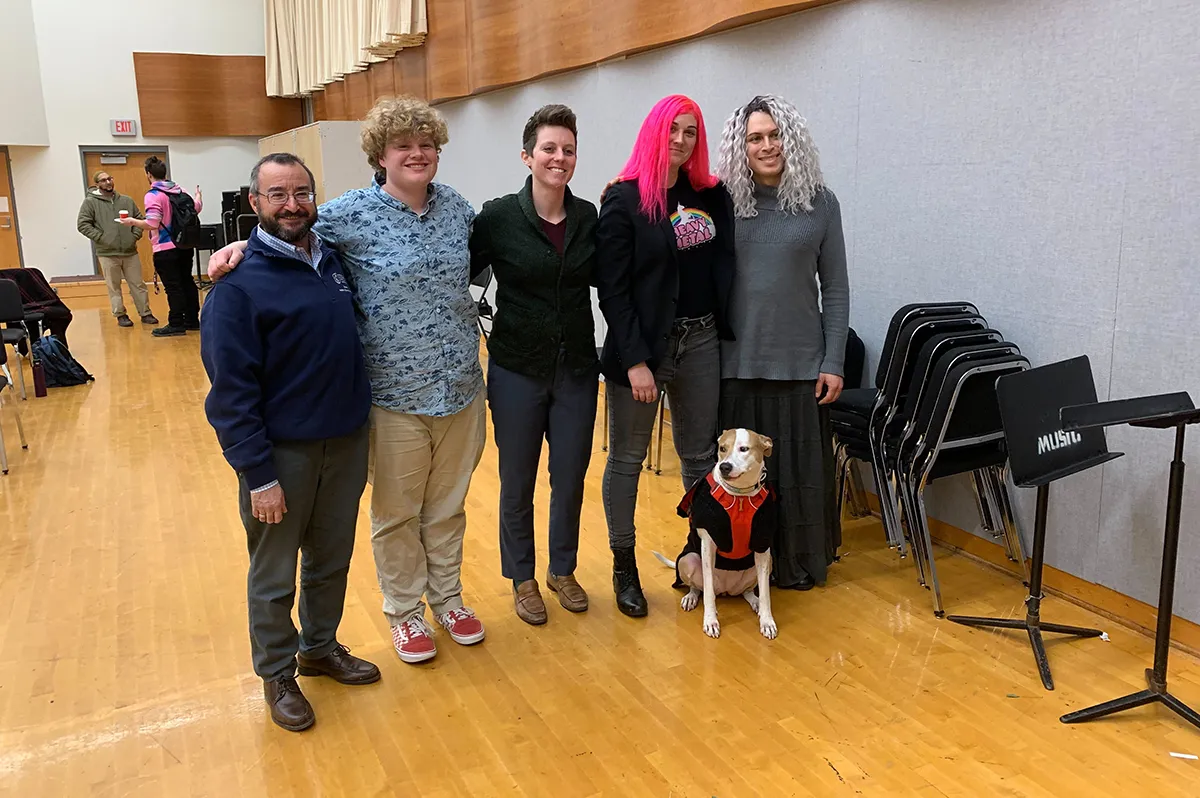This past February, the Ithaca College Trombone Troupe hosted an LGBTQ+ panel in the James J. Whalen Center for Music as part of its annual Trombone Day. Trombone Day is a long-running event where trombonists of all ages can come together and celebrate their instrument.
The panelists spoke about their experiences being part of the LGBTQ+ community in the world of music. The panel was moderated by Luca Maurer, director of the Ithaca College Center for LGBT Education, Outreach, and Services.
Panelists included Sasha Romero, principal trombonist of the Metropolitan Opera Orchestra; Clare Martin ’24, a Music Composition major and trombonist; Rebekah Daniel, assistant professor of band in Ithaca College’s School of Music, Theatre, and Dance and director of the college’s wind ensemble; and Jen Hinkle, a freelance bass trombonist.
“Sasha Romero is a powerhouse trombone player who is also a trans woman, and I’m queer myself, so I knew this would be a great opportunity to talk about being queer in music,” Martin said. It’s not something that’s always talked about, especially as brass tends to be a male-dominated instrument family.”
During the panel, Romero reflected on how respect, power, and bias intertwined throughout her life. As an undergraduate, she initially didn’t even major in music and only played in an ensemble.
